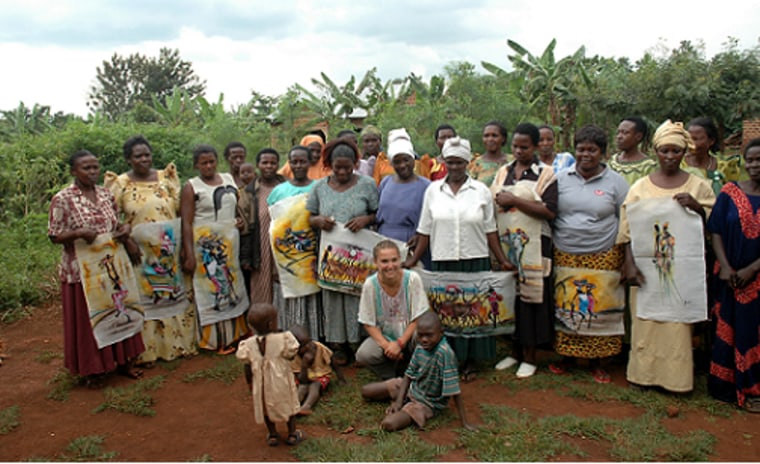Question: Can you tell me about FINCA International and the Village Banking Campaign?
Portman: FINCA International provides microloans, small loans, to primarily women in developing countries to start their own businesses. It has an incredible effect on all aspects of their lives, obviously economically, but it also improves their children’s education, nutrition and health care … their shelter, and their general sense of pride and agency in themselves. The campaign is seeking to reach more and more individuals and trying to go into more remote places where you can reach really the poorest of the poor.
Q: Please describe your role as the "Ambassador of Hope" for FINCA International and co-chair of the Village Banking Campaign.
Portman: My role is primarily one as a communicator. The people who are really doing the work are the ones on the ground and the women themselves who are working so hard to create their own businesses. My job really, within the organization, is to communicate it to the public and help fundraise, occasionally talk to politicians about helping finance our programs and also how to improve them.
Q: How did you learn about microfinancing and what attracted you to the idea?
Portman: I originally got into the whole world of microfinance because I was looking into things I could do that would affect the Middle East, because I am from Israel originally. When I was looking into it, I had the great opportunity to meet Queen Rania of Jordan who is also the most, probably, high-profile Palestinian woman in the world right now, and she was the one who guided me into microfinance. She said microfinance is a way to even out the hope gap, which is what exists between the poor and the rich; this is a way to improve the status of so many people who are suffering and that’s what leads them to … that kind of despair. So, if we want to create a sort of social equilibrium, we have to create an economic equilibrium first.
Q: How can microloaning improve the lives of women, who make up a large percentage of the world’s poor?
Portman: You are very correct in saying that women and children make up 70 percent of the world’s poor, and microfinance is an incredible way to give women the tools and the access themselves to change their own destinies. That is exactly the best thing you can do, because you’re empowering women at the same time you are helping them. They really feel that they’re in control of their own futures. They don’t have to wait for someone to help them; they can create their own business, and send their children to school as opposed to having to have them work at home. The kids get better health care, they eat better, and you just see sort of all the side effects of poverty really improved by this one sort of assistance.
Q: Can you share the most moving experience you had traveling as the Ambassador of Hope in Uganda, Guatemala, and Ecuador, or while filming the FINCA Mexico documentary?
Portman: They are all really compelling stories. One was really memorable in Mexico. A woman who was living apart from her husband because there was no employment in the town, and her husband had moved to the United States to work and was sending back money, as many people from Central and South America do. Not because they want to leave their homes and their families, but because they have to. And so, she was living apart from her husband and their two little kids, and he was sending back money, and they were far away. But there still wasn’t enough money, and she started this business with clay pots, and her business now is an enormously successful business.
They employ, I think, there was seven other employees from their village. They adopted the neighbor’s kids because the neighbors were not able to pay for their kids, so they adopted their neighbor’s child on top of their own. Now, her husband was able to come back from the States and be with her because they have gainful employment at home, where they want to be, in Mexico. So, it was really amazing to see how it wasn’t just money, it affected their love, it affected their personal relationships.
Q: What can people do to become more involved with microfinancing and your campaign?
Portman: The best way is through fundraising. Whether you fundraise with your friends or throw a party where everyone has to bring in five dollars for microfinance … then you can create a Village Bank. A Village Bank only costs $5,000, and then it exists there forever because the women pay back the loans. So once you put money in, it always is there, it’s recycled.
That’s why microfinance is so compelling, because once you put the money in, it exists in that place forever. It’s a real sustainable way of making an impact. So that’s really the best way. If people are really interested in it and want to devote their lives to it, there are incredible careers in microfinance that are similar to banking jobs, but they’re banks for the poor. It’s a really compelling career to choose.
More on:
Interviewed by Elizabeth Chang, NBC News
